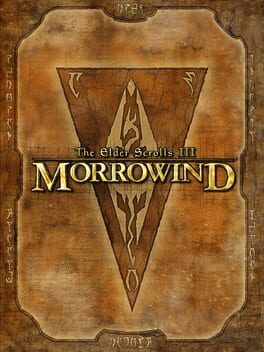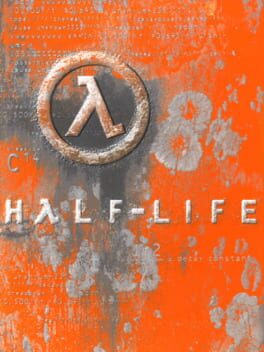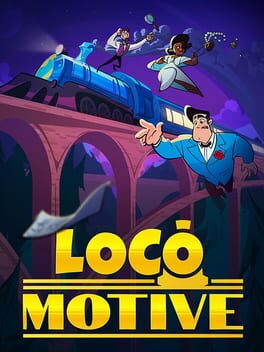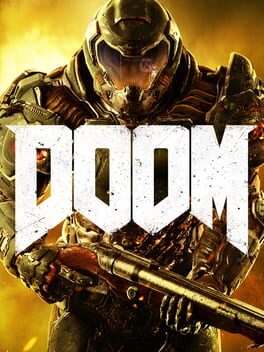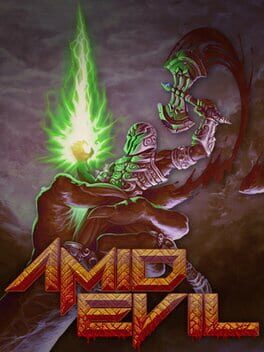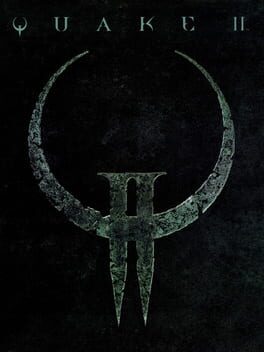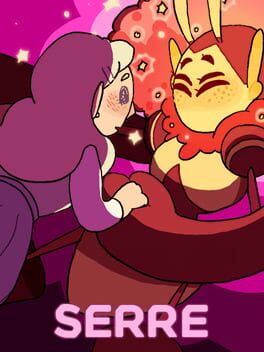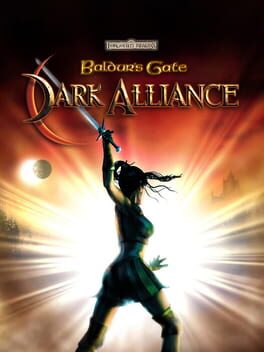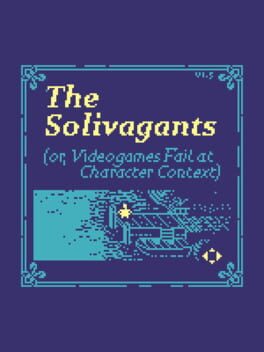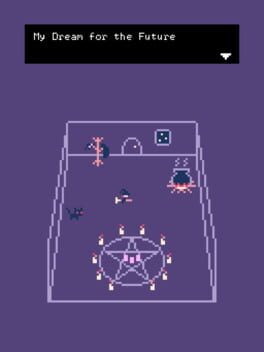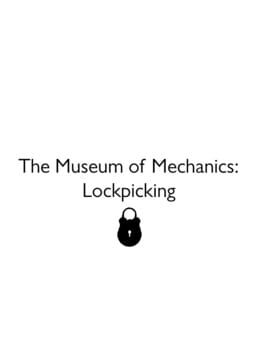Whom
BACKER
I've tried to get into Morrowind so many times over the years, and it just never sticks. One time I found myself falling in love with it mechanically, gleefully playing with spell construction, but eventually fell away from it when I got tired of being sent across the barren fucking map to deliver a message over and over. I think at this point I should give up and accept that what I'm looking for does not exist in TES before Oblivion. No matter how much I try to wander through Morrowind hoping to find charming little stories like you get in later Bethesda games, I won't find them. In game books are a really nice supplement which I enjoy, but they don't make up for the utter lack of character anywhere in the game world.
Morrowind is loved by TES lore purists and hardcore RPG players alike and while I share many of their preferences, this just doesn't come together into a cohesive whole at all. There's no flavor to the world. Each area feels the same, NPCs are not individuals you can speak to and learn about, etc.
It's a pity, because mechanically I really enjoy what's here. It has this unique way of making the game really difficult to play straight-up, but teasing you with all these different skills and methods of progression that are just asking you to abuse them. It's such a fun sandbox to play around in, I just wish there was any life in it.
Morrowind is loved by TES lore purists and hardcore RPG players alike and while I share many of their preferences, this just doesn't come together into a cohesive whole at all. There's no flavor to the world. Each area feels the same, NPCs are not individuals you can speak to and learn about, etc.
It's a pity, because mechanically I really enjoy what's here. It has this unique way of making the game really difficult to play straight-up, but teasing you with all these different skills and methods of progression that are just asking you to abuse them. It's such a fun sandbox to play around in, I just wish there was any life in it.
1998
2024
2018
Crushingly beautiful. This blending of the ancient world with modern computing and multimedia pulling from the whirlwind of the early 20th century feels so weighty, as if the truth of all existence lies within it. Of course, that's a tall order and while this small adventure is certainly smart, it's not on that level...but it feels like it is, and that's good enough.
It made me think and feel. Now I feel that I'd like to think and feel some more, thank you.
It made me think and feel. Now I feel that I'd like to think and feel some more, thank you.
2016
One of the few games where I can say that critical consensus is basically just 100% correct. This breathed new life into the FPS genre and Doom as a series and its emphasis on constantly moving forward and killing is so fucking refreshing. Unfortunately, the critics are also right on its main flaw: the loop gets repetitive to the point of agony. The moment-to-moment gameplay is always engaging, mind you, but when you clear a room, run to press the next button, and get locked in another room over and over, it becomes a bit mind numbing.
I'm glad I finally got around to finishing this. I had a save from just around the end that I think I quit because of the repetition, but coming back a while later was plenty rewarding. This is a wonderful game and the wave of throwback fpses in its wake has been the best gaming trend in years.
I'm glad I finally got around to finishing this. I had a save from just around the end that I think I quit because of the repetition, but coming back a while later was plenty rewarding. This is a wonderful game and the wave of throwback fpses in its wake has been the best gaming trend in years.
2019
Amid Evil definitely has Heretic and Hexen in its DNA (see: icantbelieveitsnothexen.com) and appeals to retro fps sensibilities, but it has its eyes on the future. All the subtle changes to the formula as well as the awesome new ideas make me feel like every fps in the future needs to use this as a blueprint.
The enemies are dynamic and some of the tougher ones require thinking and execution beyond just choosing the right weapon and pointing + clicking, you actually sometimes need to poke at them and learn their patterns and pathing in a way that's deeply satisfying. This is maybe a silly buzzword to apply to a FPS, but I feel like it's a bit "soulsy" at times. Maybe that's just me, but I feel a connection there that I don't with a lot of retro fpses and modern throwbacks. It sounds like such a simple thing, but I find that most retro-style games in this subgenre are so focused on replicating RIP AND TEAR that they forget to throw enemies at the player where it's suboptimal to just throw bullets at them. Finding out what weapons work best on what is a good start (and Amid Evil certainly has that), but at this point we can shake things up without slowing the game down to a crawl or betraying the spirit of the classics. This is the main thing for me: it's keeping the spirit and the loose structure of classic fps, but going in its own direction. Environments are fresh and new. Most of the bosses are fresh and new. Levels feel big...like, we don't need to be tied down to the cramped interiors of Quake! Those were great, but deviation from that has been treated as a betrayal (what, did we all just forget about Unreal?) up until now. I've been firmly convinced that that can and should change.
It's also just incredibly high effort. Each world has completely unique theming and enemies and I can't emphasize enough how wonderful and refreshing these are. It contains some of the most alien environments I've ever seen in a video game as well as some more grounded ones which are gorgeous in their own right. The breathtaking industrial environments of one of them is a contender for the most beautiful thing I've seen in a video game...it reminds me of my mind melting when I saw Blade Runner 2049.
The game is also very well-routed in a way that the games it's inspired by were not always perfect with. There's keys and doors, but you almost never run into those moments where you press a button and are like "uh...what did that open?" It feels like you're charging into the unknown and just wandering, but it's mapped out so well and nudges you in the right directions so you end up in the right place. All the little annoying tendencies of the genre have been smoothed out into the ultimate version of what you always knew they could be.
I'm willing to admit that it may feel like a particularly radical shift to me because I'm looking closely at this subgenre and I have a deep love for it. It might feel like a well-done throwback to some, but I see the future in this thing.
The enemies are dynamic and some of the tougher ones require thinking and execution beyond just choosing the right weapon and pointing + clicking, you actually sometimes need to poke at them and learn their patterns and pathing in a way that's deeply satisfying. This is maybe a silly buzzword to apply to a FPS, but I feel like it's a bit "soulsy" at times. Maybe that's just me, but I feel a connection there that I don't with a lot of retro fpses and modern throwbacks. It sounds like such a simple thing, but I find that most retro-style games in this subgenre are so focused on replicating RIP AND TEAR that they forget to throw enemies at the player where it's suboptimal to just throw bullets at them. Finding out what weapons work best on what is a good start (and Amid Evil certainly has that), but at this point we can shake things up without slowing the game down to a crawl or betraying the spirit of the classics. This is the main thing for me: it's keeping the spirit and the loose structure of classic fps, but going in its own direction. Environments are fresh and new. Most of the bosses are fresh and new. Levels feel big...like, we don't need to be tied down to the cramped interiors of Quake! Those were great, but deviation from that has been treated as a betrayal (what, did we all just forget about Unreal?) up until now. I've been firmly convinced that that can and should change.
It's also just incredibly high effort. Each world has completely unique theming and enemies and I can't emphasize enough how wonderful and refreshing these are. It contains some of the most alien environments I've ever seen in a video game as well as some more grounded ones which are gorgeous in their own right. The breathtaking industrial environments of one of them is a contender for the most beautiful thing I've seen in a video game...it reminds me of my mind melting when I saw Blade Runner 2049.
The game is also very well-routed in a way that the games it's inspired by were not always perfect with. There's keys and doors, but you almost never run into those moments where you press a button and are like "uh...what did that open?" It feels like you're charging into the unknown and just wandering, but it's mapped out so well and nudges you in the right directions so you end up in the right place. All the little annoying tendencies of the genre have been smoothed out into the ultimate version of what you always knew they could be.
I'm willing to admit that it may feel like a particularly radical shift to me because I'm looking closely at this subgenre and I have a deep love for it. It might feel like a well-done throwback to some, but I see the future in this thing.
1997
This game is confused. It's caught in this weird period of transformation for the fps genre between the intense constant action of the classic id games and the attempts to add narrative and tie the player down to more concrete and compelling goals than "get to the end" that would find its mature form a year later with Half-Life.
See, you kind of have to talk about Half-Life when talking about this game because it is desperately reaching for very similar goals, short of the friendly AI. Quake II pushes the player through various alien complexes (most of which are some variation on "fucked-up torture chamber"...the sadistic joy it takes in throwing them in every possible kind of wood chipper gets exhausting) and has them complete tasks along the way that are more involved than "get key, open door".
On the surface it's more than keys and doors, at least. The tasks are actually part of the narrative, amounting to shutting down a computer here to get through this area and chase the boss, or whatever. For the most part the player does just run around and press buttons to get through different doors. It's very thinly veiled. To add that grounded investment and guide the player around, there's a computer bound to F1 which gives a brief sentence describing the next objective, and it's probably the worst design decision here. Breaking up semi-traditional id combat with reading log entries vaguely telling me what I'm looking for makes for an experience that really clashes with itself. It's also just a massive pain in the ass. Going in circles in these very samey environments, backtracking to find your way to another identical-looking area to find the right button to press is so draining and not what I want to be doing in an fps like this.
Half-Life would later marry these goals with mechanics and level design that actually compliment them, giving the player a sense of purpose through environmental puzzles, a strong forward momentum, and slower, more methodical combat which could feel oppressive. It's easy to look back at this era and think about how great Half-Life was and also lament its murder of the 90s shooter. That game killed the adrenaline, killed the crowd control, killed the early purity of the genre, and that kind of sucks. But when you look at games shortly before Half-Life like this one, you see that there's no way developers could have reached for the new kinds of experiences they wanted to give us while also keeping the intensity the genre and id's entries in particular had at their core. When you try to do both, you end up with games like Quake II. Painful stop-and-start and "WHERE THE FUCK DO I GO" moments really smack down the strong mechanical core that's here. More recently id themselves have been trying that balance again with the DOOM reboot, leading to similar issues, though modern conveniences like map markers and a much heavier focus on the action make DOOM 2016 a much more successful experiment than the second Quake. So maybe Quake II's take on the genre just came at the wrong time, and we needed to learn from the hard swing toward the Half-Life model that dominated the 00s to pull it off right.
Quake II does not at all live up to the tight near-perfection of its predecessor, but it's a solid shooter and worth a play. If anything, it's a fascinating historical document for anyone who cares about first person shooters. We're still trying to solve the problems that this entry was taking an early crack at, so I guess I can't blame it too much. It's still a good time. Shooting feels good, and once you get that glorious RL + rail combo everything falls into place. Play it and enjoy yourself, but you'll probably come out the other end happy that Quake II didn't spawn many imitators.
See, you kind of have to talk about Half-Life when talking about this game because it is desperately reaching for very similar goals, short of the friendly AI. Quake II pushes the player through various alien complexes (most of which are some variation on "fucked-up torture chamber"...the sadistic joy it takes in throwing them in every possible kind of wood chipper gets exhausting) and has them complete tasks along the way that are more involved than "get key, open door".
On the surface it's more than keys and doors, at least. The tasks are actually part of the narrative, amounting to shutting down a computer here to get through this area and chase the boss, or whatever. For the most part the player does just run around and press buttons to get through different doors. It's very thinly veiled. To add that grounded investment and guide the player around, there's a computer bound to F1 which gives a brief sentence describing the next objective, and it's probably the worst design decision here. Breaking up semi-traditional id combat with reading log entries vaguely telling me what I'm looking for makes for an experience that really clashes with itself. It's also just a massive pain in the ass. Going in circles in these very samey environments, backtracking to find your way to another identical-looking area to find the right button to press is so draining and not what I want to be doing in an fps like this.
Half-Life would later marry these goals with mechanics and level design that actually compliment them, giving the player a sense of purpose through environmental puzzles, a strong forward momentum, and slower, more methodical combat which could feel oppressive. It's easy to look back at this era and think about how great Half-Life was and also lament its murder of the 90s shooter. That game killed the adrenaline, killed the crowd control, killed the early purity of the genre, and that kind of sucks. But when you look at games shortly before Half-Life like this one, you see that there's no way developers could have reached for the new kinds of experiences they wanted to give us while also keeping the intensity the genre and id's entries in particular had at their core. When you try to do both, you end up with games like Quake II. Painful stop-and-start and "WHERE THE FUCK DO I GO" moments really smack down the strong mechanical core that's here. More recently id themselves have been trying that balance again with the DOOM reboot, leading to similar issues, though modern conveniences like map markers and a much heavier focus on the action make DOOM 2016 a much more successful experiment than the second Quake. So maybe Quake II's take on the genre just came at the wrong time, and we needed to learn from the hard swing toward the Half-Life model that dominated the 00s to pull it off right.
Quake II does not at all live up to the tight near-perfection of its predecessor, but it's a solid shooter and worth a play. If anything, it's a fascinating historical document for anyone who cares about first person shooters. We're still trying to solve the problems that this entry was taking an early crack at, so I guess I can't blame it too much. It's still a good time. Shooting feels good, and once you get that glorious RL + rail combo everything falls into place. Play it and enjoy yourself, but you'll probably come out the other end happy that Quake II didn't spawn many imitators.
2019
2019
So...that was one of the greatest things I've ever played.
I've never been asked to think this way before. That alone makes Superliminal a worthwhile experience, but it's so packed full of ideas pushing it further and further and further that it ascends to something truly great.
Playing this game is like getting to experience as an adult what it felt like to be a toddler playing with simple toys and random objects just to figure out how the world works. It awakens that long-dormant part of the brain that I haven't experienced since being a young child myself. It's fucking magical, and nearly every area I was dropped into gave me multiple of those pure giggles that come from making something work in a way you'd never considered before. It's the sheer stress, fear, uncertainty, and joy of learning condensed into the most tightly bound package possible. Plus the genuine love for the player that Superliminal radiates feels like a warm hug.
---
I will say: take the derealization / dissociation warning seriously. I've struggled with these things and this game was not a trigger for me, but I can absolutely imagine it being one if I played it in the wrong moment. Just know your limits...I think this has real therapeutic value when it comes to those issues, but the risks are real too.
I've never been asked to think this way before. That alone makes Superliminal a worthwhile experience, but it's so packed full of ideas pushing it further and further and further that it ascends to something truly great.
Playing this game is like getting to experience as an adult what it felt like to be a toddler playing with simple toys and random objects just to figure out how the world works. It awakens that long-dormant part of the brain that I haven't experienced since being a young child myself. It's fucking magical, and nearly every area I was dropped into gave me multiple of those pure giggles that come from making something work in a way you'd never considered before. It's the sheer stress, fear, uncertainty, and joy of learning condensed into the most tightly bound package possible. Plus the genuine love for the player that Superliminal radiates feels like a warm hug.
---
I will say: take the derealization / dissociation warning seriously. I've struggled with these things and this game was not a trigger for me, but I can absolutely imagine it being one if I played it in the wrong moment. Just know your limits...I think this has real therapeutic value when it comes to those issues, but the risks are real too.
2017
A really solid and technically impressive Diablo-like held back from greatness by an incredibly limited selection of equipment and ultra-repetitive enemies. I really wanted to love this, but once you pass the first act and realize how little flavor there is in the rest of the game, it settles into just being "pretty good."
Holy shit I can play as Drizzt now nvm this is actually the best game ever
Holy shit I can play as Drizzt now nvm this is actually the best game ever
Hits painfully close to home, since I was one of those English Ed students who was lucky enough to panic-switch majors far too late into school that the narrator mentions. I was so afraid of teaching permanently forcing me in the closet and making my anxiety explode that I ran away, which the creator here wasn't able to do.
Needless to say, my experience is different from theirs, but with that bit of overlap and the fact that I'm staring into uncertainty myself...this is a comfort.
Needless to say, my experience is different from theirs, but with that bit of overlap and the fact that I'm staring into uncertainty myself...this is a comfort.
I love the idea of little exhibitions of solutions to the same problem made over the course of gaming history. This does so wonderfully with lockpicking, though I do wish it had something of a conclusion or drew more lines connecting the different systems. In that way it is really just a museum: the artifacts exist for me to see and come with mostly matter-of-fact descriptions, but actually making something of that info is up to you.
It's very rough...the center-aligned text hurts and the video for PickLock doesn't play. It doesn't need to be fancy, though, you get the information (except for the PickLock video) regardless.
It's very rough...the center-aligned text hurts and the video for PickLock doesn't play. It doesn't need to be fancy, though, you get the information (except for the PickLock video) regardless.
